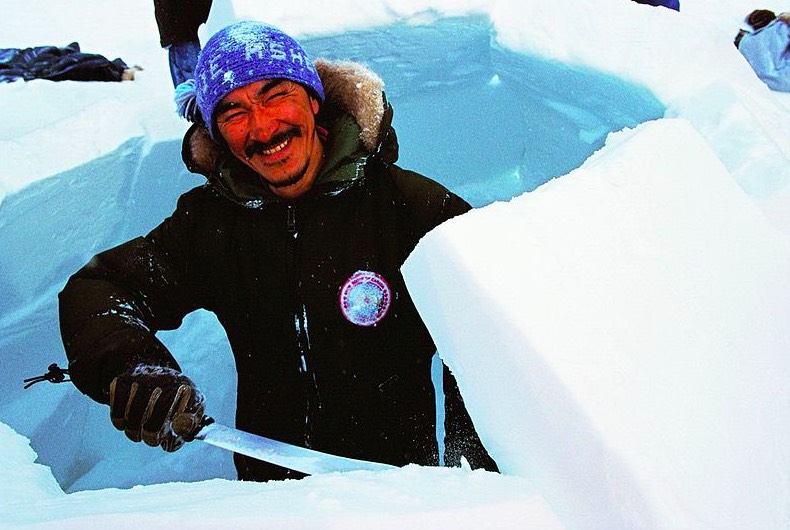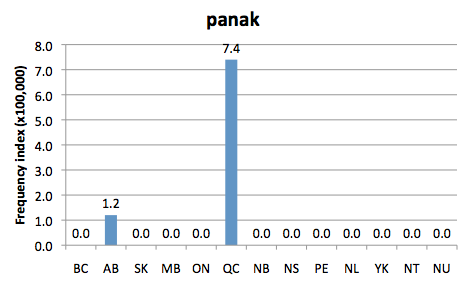Quick links
panak
DCHP-2 (Nov 2012)
n. — Territories, especially Nunavut & Quebec
a long broad knife used to make igloos (see Image 1).
Type: 1. Origin — Panak is a borrowing from Inuktitut, a language used by many Inuit. It is used primarily in the North, though Chart 1 does not show this regional spread in the written record on the internet. Here, Quebec stands out, but it must be considered as secondary in use in the spoken language to Nunavut, followed by the Northwest Territories and the Yukon by a great margin. In addition, the term is centuries older than the first written quotation we could muster. Prior to 1990, the form appears to be preserved in writing only in the form of a family last name, Panak, which illustrates the relative neglect of mainstream Canadian culture in regards to Inuit terms and traditions.
See also ITP Nelson, s.v. "panak", which is marked "Northern Canada".
See also ITP Nelson, s.v. "panak", which is marked "Northern Canada".
See: igloo(meaning 1a)
Quotations
1990
I lived in the Keewatin area of Hudson Bay for nine years and can attest to the following Inuit words for snow: snow (spread out) - [...]; snow knife - panar, panak; snow (fine, like salt) pokaktok; snow mixed with water - massak; snow (newly drifted) akelrorak; snow (on clothes, etc.) - ayak; snow soft - mauyak, mauyaolertok; snows (it) kannertok.
2005
With respect to antlers, sections were used for the handles of blades of knives (savik and panak [snow knife]), the handles of uluit (knives traditionally used by women, in the shape of a half-moon), shovels, harpoon points and objects through which the lines for dog teams were thread.
2009
On the last morning, an icy wind pierced our clothing during the closing ceremony. Each student was awarded a panak (snow block cutting knife) for meeting the challenges of Arctic survival. Each student accepted the award with a smile, knowing we would soon be back in the warmth of the hotel. Following the ceremony, we packed, boarded the sleds and headed for town.
2015
Kangiakallak is considered an exceptional Thule archaeological site because it has the best preservation of organic materials ever excavated in Nunavik, particularly wood. Interesting finds included a sled runner, Thule and Dorset harpoon heads, an ivory panak (snow knife) handle, a stone knife with a wooden handle, a needle, baleen knots and a wooden doll.
References
- ITP Nelson
Images

Image 1: Building an igloo in Cape Dorset (southern region of Baffin Island) using a panak, 30 Mar. 1998. Photo: A. Walk
